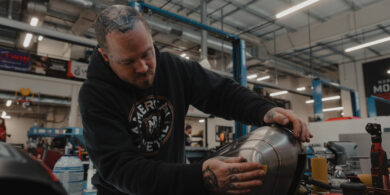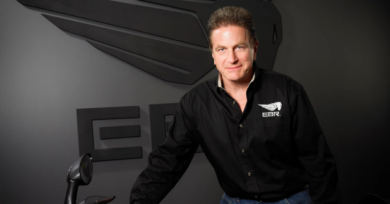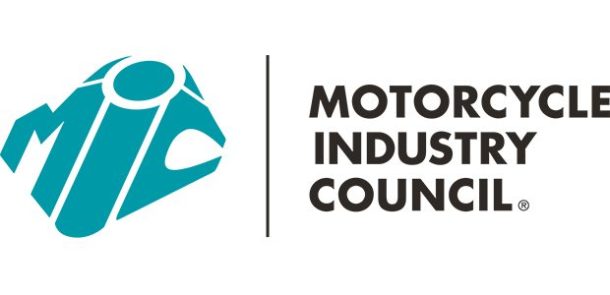Benefit cost increases:?it’s enough to make you sick- September 4, 2006
While much has been written about competition from big box retailers, the flow of low-priced goods from Asia and the ability of the Internet to constantly create additional competitors, a top area of concern cited by powersports dealers responding to a national survey was the rising cost of employee benefits.
The survey of 400 dealers conducted for Powersports Business asked dealers to rate issues of concern on a 1 to 5 scale. Of the 15 concerns dealers were asked, the rising cost of benefits received the highest score, at 3.92.
And surveyed dealers contacted for this story backed up that concern about rising benefit costs — particularly health insurance.
Their concern is mirrored in other industries. Business Roundtable, a national organization of CEOs, cited health care as the greatest threat to their business in December for the third straight year.
“I can’t offer it because it’s so high,” Donna La Forgia, a dealer principal, says of health insurance. “It’s a sin in this day and age.”
La Forgia owns Bergen Sportcycles, Lodi, N.J., a Honda, Kawasaki, Suzuki and Yamaha dealership that sells about 1,000 motorcycles a year and employs between 15 and 18 people, depending on the season. “My employees do have insurance through their spouses, luckily,” La Forgia says. “Those people work for large-enough companies that have it.”
Medical insurance for La Forgia and other company principals is paid by the company, but La Forgia wishes she could do more. “I know some of our employees are hurting,” she says. “I can’t get our people covered with health care, and Congress votes benefits for themselves. The common guy is breaking his back every day, but he can’t afford half of what (congressional leaders) get.”
Despite a lack of health insurance or retirement benefits, La Forgia says turnover is low. One employee has been with Bergen Sportcycles for 36 of its 38 years, and 20-year employees are not uncommon. What’s the secret to her success? “I take care (of employees) through the winter when we’re not selling,” La Forgia says.
Hanley Co. Inc., which includes a powersports dealership and divisions that sell farm equipment and lawn-and-garden equipment, recently changed health coverage to cope with rising premiums, says Loyd Cook, sales manager for the dealer based in Sun Prairie, Wis. The company sells Kawasaki, Polaris and Victory motorcycles and employs a total of 43, including 12 in the powersports division.
After health insurance premiums were scheduled to rise more than 30 percent, the company changed coverage with the same carrier, paying the same premiums but employees have higher deductibles. Hanley pays two-thirds of employee health insurance, Cook says, and the company offers a 401(k) retirement plan.
“We’ve hired a risk management company to serve as our insurance consultant to check out (insurance)?companies so we don’t have to do it,” Cook says. Sun Prairie is near Wisconsin’s capital city, and the company competes against state and municipal entities for labor. “It’s just one of the things we have to do,” Cook says of benefits.
Each Cahill’s store in central Florida stands on its own, and each has a different policy regarding health benefits, says Charlie Ridgeway, general manager at Cahill’s of North Tampa and Cahill’s Motorsports in Zephyrhills. The product lineup at both stores includes Yamaha, Arctic Cat and KYMCO, but the Tampa store also carries KTM.
“The Tampa store is more of a competitive market, so we offer it,” Ridgeway says. “We don’t offer it at the Zephyrhills store because of cost.”
The company spends $7,800 a month for health, liability and workers’ comp insurance at the North Tampa store, compared to $3,000 a month in Zephyrhills, Ridgeway says.
“We price shop (insurance) every year, and change policies if necessary to keep costs down,” Ridgeway says. “We want halfway decent insurance because we have families and have the same insurance, too.”
To cope with rising health insurance costs, Freedom Cycle, Concord, N.H., is relying more on part-time employees, says Andy Galliher, general manager. The company employs 24 full-time workers and eight part-time ones, selling powersports products from Yamaha, Suzuki, KTM, Arctic Cat, Ski-Doo, Can-Am and Honda Power Products.
“As a conscientious person, you have to provide (insurance),” Galliher says. “As a business, we’ve shouldered a big part of the costs, but how much longer we can do so remains to be seen.”
Health insurance costs have risen 25 percent a year for each of the past two years, which prompted a change of plans. “It’s crippling to us, and it’s crippling to employees, too,” Galliher says of ever-higher premiums. “Fortunately, most of our employees are pretty healthy.”
Still, the company plans to monitor its insurance costs closely and will consider a high-deductible plan or another creative solution should the costs continue to skyrocket.
Can You Spare a Mechanic?
On the survey’s concern ranking, a lack of qualified technical people received the second-highest score, at 3.77. In fact, this concern was tops among those from the South who answered the survey.
“It’s tough to get good mechanics,” says Cook from Hanley Co. “We get them trained, and they go into the car and truck business.”
Cook said one of their techs started with the company while still in high school. The employee received a scholarship to attend a technical school about 100 miles away, and the company paid him gas money to come back and work when not in school. He’s now working for the company full time.
“Dealers always are looking for good techs,” says Galliher from Freedom Cycle. “I know that (finding techs) is a problem in the industry, but we have a really good staff, so it’s not a problem for us.”
Ridgeway from Cahill’s wishes he didn’t have a service tech problem. “We’re two weeks behind on service, and I know some other dealers who are running four weeks behind,” Ridgeway says. “Kids today just don’t want to get their hands dirty.”
The company runs classified ads for help, but those who apply either don’t know much or don’t have the right tools, Ridgeway says. Calls to the Motorcycle Mechanics Institute either go unreturned or applicants only know 20 percent of what they should.
“There’s no more love of cars or love of motorcycles,” Ridgeway says. “Once you get someone trained and get them going, they’ll leave for $50 extra a week. I can’t blame them, though, because money makes the world go ’round.” psb




